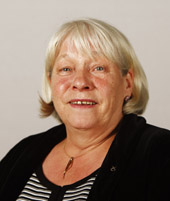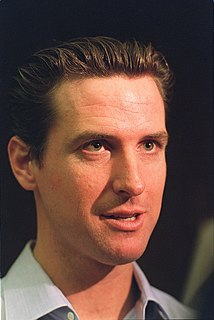Robert Douglas McIntyre was a Scottish physician and a Scottish National Party politician and Member of Parliament.

The Unionist Party was the main centre-right political party in Scotland between 1912 and 1965.

Sandra White is a retired Scottish National Party (SNP) politician. She was a Member of the Scottish Parliament (MSP) for the Glasgow electoral region from 1999 until 2011, and then the MSP for the Glasgow Kelvin constituency from 2011 until she stood down from the Scottish Parliament at the May 2021 election.

The Scottish Protestant League was a political party in Scotland during the 1920s and 1930s. The League was led by Alexander Ratcliffe, who founded it in 1920.
The Progressive Party was a municipal political organisation that operated in several Scottish cities and towns in the 20th century. It was based on tacit anti-Labour co-operation between the Unionist Party, Scottish Liberals and independents.

The 2003 San Francisco mayoral election occurred on November 4, 2003. The incumbent, Willie Brown, was termed out of office and could not seek a third term. The general election included three top candidates including then Supervisor Gavin Newsom and then president of the board of supervisors, Matt Gonzalez and former supervisor Angela Alioto. No candidate received the required majority, so the race went into a run-off of the two top candidates, which were Gavin Newsom and Matt Gonzalez. The run-off occurred on December 9, 2003, where Gavin Newsom was elected mayor of San Francisco.

Anas Sarwar is a Scottish politician who has served as Leader of the Scottish Labour Party since 2021. He has been a Member of the Scottish Parliament (MSP) for the Glasgow region since 2016, having been Member of Parliament (MP) for Glasgow Central from 2010 to 2015. Ideologically, he identifies as a Brownite.

Peter McColl is a political campaigner and writer who was Rector of the University of Edinburgh 2012–2015. He has been involved with charity work and is editor of the progressive blog Bright Green.
The Protestant Action Society was a political party in Edinburgh active in the 1930s. It was founded by John Cormack in 1933 and had elected nine members to the Edinburgh Council in 1936 with 31 percent of the vote.
The politics of Glasgow, Scotland's largest city by population, are expressed in the deliberations and decisions of Glasgow City Council, in elections to the council, the Scottish Parliament and the UK Parliament.
Events from the year 1920 in Scotland.
The Moderates were a municipal political organisation operating in Scotland in the early 20th century. The group was based on tacit anti-Labour co-operation between local Unionist Party, Liberal and Independents politicians. The Moderates dominated Glasgow Corporation until the 1933 election, when the rise of the Scottish Protestant League split the Moderate vote and allowed Labour to gain control of the council for the first time.

The 1933 Glasgow Corporation elections were held on 7 November 1933. The results were devastating for the Moderates, who lost control of the Corporation to Labour for the first time, despite socialist candidates making gains in Glasgow at successive general elections. Labour’s victory came as a surprise, even to the party itself, which had already begun blaming its anticipated defeat on vote-splitting caused by the presence of the ILP & the Communists. Labour's dominance of the Corporation would continue, nearly unbroken, to the present day.

An Election to the Edinburgh Corporation was held on 7 May 1968, alongside municipal elections across Scotland. Of the councils 69 seats, 22 were up for election. Despite receiving the most votes of any single party, the SNP won only 7 seats. Unlike in Glasgow, the Progressives and Conservatives did not run on a joint ticket. Despite that however the parties only ran competing candidates in the Gorgie-Dalry ward.
Scottish local elections were held in 1967 to elect members to the various Corporations, Burghs, and County Boards of Scotland.

An Election to the Edinburgh Corporation was held on 2 May 1972, alongside municipal elections across Scotland. Of the councils 69 seats, 23 were up for election.

An Election to the Edinburgh Corporation was held on 1 May 1973, alongside municipal elections across Scotland. Of the councils 69 seats, 26 were up for election. Labour, despite needing only 1 gain to take control of the council, failed to do so, preventing them from a historic win.

Elections to the Corporation of the City of Glasgow were held on Tuesday 3 November 1896, alongside municipal elections across Scotland, and the wider British local elections.

Elections to Edinburgh Corporation were held on 3 May 1960, alongside municipal elections across Scotland. Of the councils 69 seats, 24 were up for election, including two seats in Murrayfield-Cramond ward. However only 15 wards in 14 seats were contested, as councillors were returned unopposed in nine wards.

Elections to Edinburgh Corporation were held on 2 May 1961, alongside municipal elections across Scotland. Of the councils 69 seats, 23 were up for election. However, only 16 seats were contested, as councillors were returned unopposed in seven wards.












